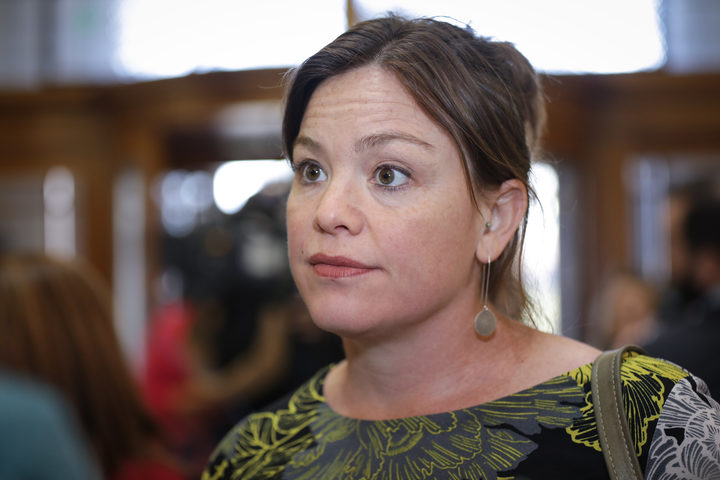
Expressing her views on the controversial decision released yesterday about a 6-year-old hit and killed by a recycling truck, Genter said the decision made "a classic mistake".

The coroner's report looked into the death of Carla Neems - who was killed by a recycling truck as she scootered home from school in Gisborne on May 2, 2017.
Coroner Tim Scott ruled that Carla should have been accompanied by an adult on her journey home - instead of her elder siblings or friends.
"I do not accept that it was acceptable for Carla to go to and from school in the care of her older siblings - and part of the way home alone.
"The siblings were too young to be vested with that responsibility," he said.
"Sadly the confidence that [her parents] had about Carla's road safety was misplaced and flies in the face of what happened."
Genter is one of many prominent Kiwis to comment on the decision, which shocked many because it goes against social norms.
"This is a tragic event and my heart breaks for the family of this little girl," Genter said.
"Our kids deserve to grow up in towns and cities that prioritise their safety in way that also allows them to be independent and healthy.
"Ironically, the actual biggest risks to our kids' health and future are 1) unchecked climate chaos caused by fossil fuel use, and 2) non-communicable disease caused by insufficient physical activity, junk food and sugary drinks.

Genter also referred to an article she recently read that suggested a reason more young adults and adolescents are experiencing anxiety is because they don't have as much unstructured and unsupervised play time.
"They aren't getting the same opportunity to be independent that previous generations had, and that will only get worse unless we start changing the way we define the problem of risk," she said.
"The freedom, health and wellbeing of children should be at the heart of how we design our towns and cities. That's why safer streets, safer speeds and intersections, and protected infrastructure for walking and cycling are a priority for our Government."
Living Streets Aotearoa, a national walking and pedestrian organisation, said it was a child's right to walk to school safely and it was the Government's job to make sure it was safe to walk to school or to play.
"Walking for a child is a part of growing up, a part of being independent and part of being out in your community," president Andy Smith said.
"We need to encourage walking and walking to school as it is a way to bring people the physical and mental health. We humans are designed for walking.
"Children are okay to walk on their own when their parents think they are. The parents are the ones who know best. It might be when they're 5, it might be when they're 15.
"It depends on the individual child. It's not the police, the school or the coroner who should be dictating that."
Smith said Living Streets would like to see a strong response from the Government on the coroner's ruling.
"It's a clear case of victim blaming."
Yesterday the New Zealand Principals' Federation, Gisborne Mayor Meng Foon and Education Minister Chris Hipkins all agreed that children should feel free to walk to school safely.
"Parents, schools and their local communities are best placed to determine how to keep kids safe on their journey to and from school," Hipkins said.
Foon added, "It's been a long held tradition and for tens of years - ever since I was going to school - that we all walk to school," he said.
"As long as the kid is safe, they know the road rules, and to cross at the pedestrian crossing and stay on the footpath."
NZPF said it was surprised by the Coroner's comments and believed parents were best placed to make "sound judgements" about their children's safety.
"We have to allow parents the right to make sound judgements about the safety of their children when going to and from school and trust that they make the best judgements for their children. Many thousands of children of the same age accompanied by older siblings walk to and from school safely every day.
"When dealing with human behaviour we cannot legislate for perfection but we can make machinery and vehicles safer."












